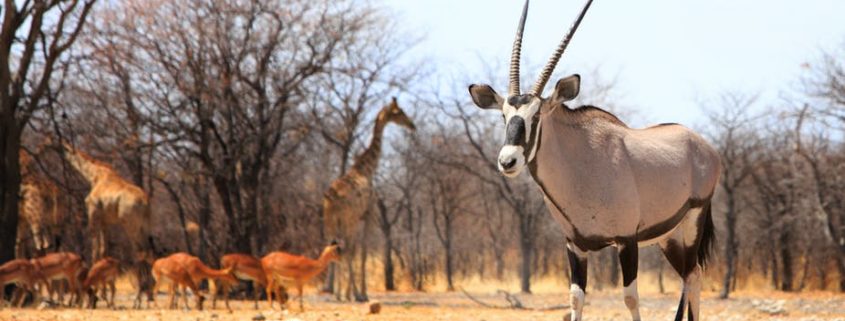What Africa’s tourism needs to survive Post-Pandemic effects.
Tourism is an integral part of the economic sector of most African countries in the last two decades, which has seen increased investments in product development and enhancements, aggressive marketing with appropriate business-friendly socio-political reforms.

Tourism is an integral part of the economic sector for most African countries in the last two decades, which has seen increased investments in product development and enhancements, aggressive marketing with appropriate business-friendly socio-political reforms.
According to reports from the United World Tourism Organization, one out of 20 jobs in Sub-Saharan Africa is in the travel and tourism sector with about 67 million international tourists who visited the continent in 2018, which generates around US$38 billion for the sector in Africa.
The report further stated an estimated figure of an increase to about 4.2% in international arrivals into the continent in 2019 with some reports predicting an increase of 3%-5% just before the Covid-19 pandemic outbreak. Some of the factors driving growth in the travel and tourism sector in Africa include favorable economic growth, strong demand for air travel, easy visa processing, and improvement in digital technologies.
Like other sectors, tourism is also vulnerable to external shocks and crises, especially international tourism. Over the years, the sector has suffered several setbacks like recessions, safety, and security threats which include, negative international media reports, terrorist attacks, natural disasters, pandemics, and epidemics.
African countries need to adopt effective means to manage the Post-Covid-19 void.
Covid-19’s effects on tourism
Since the first Coronna case was detected in Wuhan, China in Dec 2019, the tourism sector has suffered a massive hit which has cost it about 50 million jobs worldwide. Experts think it could take more than 10 months for the tourism sector to recover in other parts of the world, in Africa it could take almost a year.
Additionally, the travel body estimates that the 2020 global international tourist arrivals in Africa could decline to between 1% to 3%. This could translate into a loss of $30 to $50 billion in spending by international visitors. Asia and the Pacific region is expected to be the most affected. But Africa is equally expected to suffer, perhaps even more so.
All over the continent attractions have closed. Hotels are operating at single-digit occupancy rates and in some cases have closed down. Countries have closed their airspaces, and food and beverage businesses are mostly closed as a result of social distancing guidelines.
This has resulted in massive lay-offs and workers being furloughed. Governments have also seen a loss of revenue and foreign exchange.
Read More:
Social distancing through summer: Here’s what we know about beaches, travel, camps and more
9 Aspects To Consider Before Traveling Overseas Again
Survival for the sector
The tourism sector has a kind of natural resilience and surviving energy that depends on people’s urge to travel and see places across the globe for diverse reasons. The sector needs effective preparedness, rapid development, a reliable response network, adopting measures that promote swift recovery, and a result-driven media plan.
Some of the measures expected to be put in place by the sector include the provision of protective equipment, early detection facilities, and management. The persuasive advertisement has helped the tourism sector drive sustainably, even after terrorist attacks like the tragic 9/11 and it can be done again.
The strategies of recovery for the tourism sector Post-crisis will also require strong re-awareness and clearing of misconceptions about the pandemic in Africa. This will help boost confidence in travelers, keep them aware of the latest development across all destinations in Africa as alternative holiday destinations.
.
It is noteworthy for the African tourism sector to take the bull by the horn in terms of brand communication through both traditional and non-traditional media which should be employed in promoting the industry, bashing negative news from other sources, and properly sensitizing tourists.
The focus of players in the tourism sector should focus on increasing and promoting intra-African tourism and travels, building a Pan-African tourism model that will help stimulate rapid growth in the industry.
There is a vast untapped wealth of domestic tourism that could greatly push up revenue in the tourism sector across Africa.
These action plans are worth working on effectively if the African travel and tourism sector wants to enjoy rapid recovery and growth.



